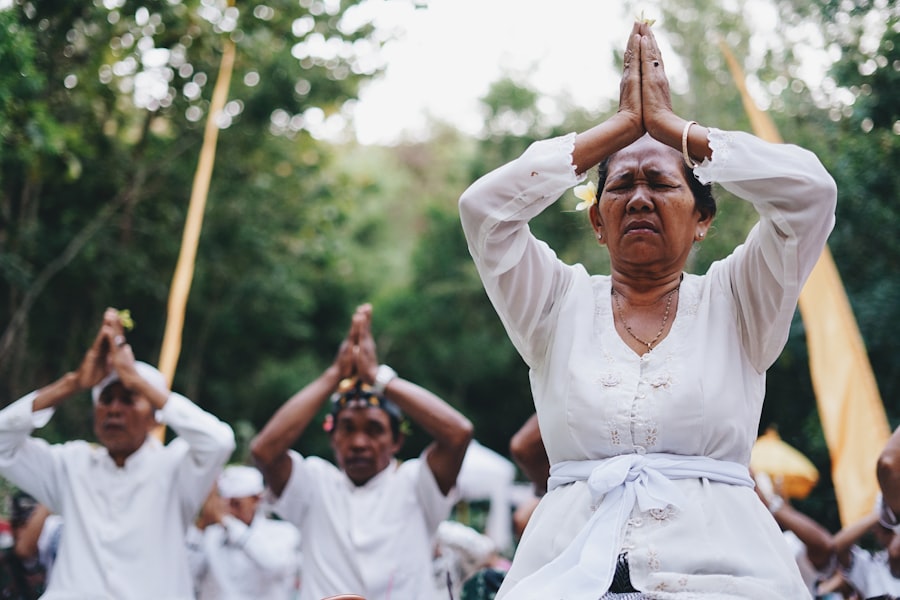Humanism is a philosophical stance that emphasises the value and agency of human beings, individually and collectively. It is rooted in the belief that humans are capable of reasoning, ethics, and self-fulfilment without necessarily relying on religious doctrines. As you delve into the world of humanism, you will discover that it promotes a secular approach to life, encouraging individuals to seek meaning and purpose through their experiences, relationships, and contributions to society.
This perspective fosters a sense of responsibility towards oneself and others, advocating for compassion, empathy, and social justice. As you explore humanism further, you will find that it encompasses a wide range of beliefs and practices. It is not merely an absence of religion but rather a rich tapestry of ideas that celebrate human potential and creativity.
You may encounter various interpretations of humanism, from ethical humanism, which focuses on moral values derived from human experience, to existential humanism, which contemplates the nature of existence and personal freedom. Understanding these nuances will be crucial as you navigate your journey in this field, allowing you to connect with others who share similar values and aspirations.
Summary
- Humanism is a non-religious belief system that focuses on reason, ethics, and compassion.
- To become a humanist celebrant, one must undergo specific training and obtain relevant qualifications.
- Personalised ceremonies are at the heart of humanist celebrancy, tailored to reflect the beliefs and values of the individuals involved.
- Humanist celebrants have legal responsibilities, such as ensuring the marriage or partnership is legally binding.
- Building a network of contacts within the humanist community and beyond is crucial for success as a celebrant.
Training and Qualifications:
Embarking on a career in humanism often requires a combination of formal training and personal development. While there are no strict educational prerequisites, many individuals find that pursuing relevant qualifications can enhance their credibility and effectiveness. You might consider enrolling in courses related to philosophy, ethics, or social sciences, which can provide you with a solid foundation in the principles of humanism.
Additionally, specialised training in areas such as counselling or public speaking can equip you with essential skills for engaging with diverse audiences. Beyond formal education, practical experience is invaluable in this field. You may want to seek opportunities for volunteering or internships with organisations that promote humanist values.
This hands-on experience will not only deepen your understanding of humanism but also allow you to develop essential skills in communication, facilitation, and event planning. Engaging with established practitioners can also provide mentorship opportunities, helping you to refine your approach and gain insights into the nuances of creating meaningful ceremonies and events.
Creating Personalised Ceremonies:

One of the most rewarding aspects of working within the realm of humanism is the opportunity to create personalised ceremonies that reflect the unique values and beliefs of individuals and families. As you embark on this journey, you will learn the importance of listening attentively to your clients’ stories and understanding their desires for significant life events such as weddings, naming ceremonies, or memorials. Each ceremony presents a chance to honour personal narratives while incorporating elements that resonate with the participants’ beliefs and experiences.
In crafting these ceremonies, you will find that creativity plays a vital role. You may draw upon various cultural traditions, literary references, or even contemporary themes to create a ceremony that feels authentic and meaningful. Collaborating closely with your clients will enable you to weave their preferences into the fabric of the event, ensuring that it reflects their individuality.
The joy of witnessing a ceremony come to life, filled with personal touches and heartfelt moments, will undoubtedly be one of the highlights of your work in this field.
Legalities and Responsibilities:
As you navigate the world of humanism and personalised ceremonies, it is essential to understand the legalities and responsibilities associated with your role. Depending on your location, there may be specific regulations governing the conduct of ceremonies such as weddings or naming events. Familiarising yourself with these legal requirements will ensure that you can guide your clients through the necessary steps to make their ceremonies official.
This knowledge not only enhances your professionalism but also instils confidence in those who seek your services. Moreover, ethical considerations are paramount in this line of work. You will be entrusted with sensitive information about your clients’ lives, beliefs, and emotions.
Maintaining confidentiality and demonstrating respect for their values is crucial in building trust and rapport. As you engage with diverse individuals from various backgrounds, it is essential to approach each situation with an open mind and a commitment to inclusivity. By upholding these ethical standards, you will contribute positively to the perception of humanism as a compassionate and respectful philosophy.
Building a Network:
In any profession, building a network is vital for growth and success. As you embark on your journey in humanism, consider connecting with like-minded individuals who share your passion for creating meaningful ceremonies.
Attend workshops, conferences, or local meet-ups where you can engage with fellow practitioners and exchange ideas.
These interactions can lead to valuable collaborations and partnerships that enhance your offerings while expanding your reach within the community. Additionally, establishing relationships with other professionals in related fields can be beneficial. You may find it advantageous to connect with wedding planners, event coordinators, or even mental health professionals who can refer clients to you or collaborate on projects.
By fostering these connections, you will not only enhance your visibility but also create a support system that can provide guidance and encouragement as you navigate the challenges of your chosen path.
Marketing and Promotion:

As you establish yourself within the realm of humanism, effective marketing and promotion will be essential for attracting clients and building your brand. Begin by creating a professional website that showcases your services, philosophy, and testimonials from satisfied clients. This online presence will serve as a platform for potential clients to learn more about what you offer while allowing them to connect with you easily.
Social media can also play a significant role in promoting your work. Consider using platforms such as Instagram or Facebook to share insights about humanism, highlight memorable ceremonies you’ve conducted, or engage with your audience through thought-provoking content. By cultivating an online community around your brand, you can foster connections with individuals who resonate with your values and may seek your services in the future.
Continuing Professional Development:
The field of humanism is ever-evolving, making continuing professional development crucial for staying relevant and effective in your practice. As you progress in your career, consider seeking out workshops or courses that focus on new trends in ceremony creation or advancements in ethical practices. Engaging in ongoing education will not only enhance your skills but also demonstrate your commitment to providing high-quality services.
Networking with other professionals can also facilitate learning opportunities. By participating in discussions or forums related to humanism, you can gain insights into emerging ideas or best practices within the field. Additionally, attending conferences or seminars can expose you to diverse perspectives and innovative approaches that can enrich your own practice.
Challenges and Rewards:
While pursuing a career in humanism can be incredibly fulfilling, it is not without its challenges. You may encounter situations where clients have differing beliefs or expectations regarding their ceremonies. Navigating these differences requires sensitivity and adaptability as you strive to create an inclusive experience for all involved.
Additionally, managing the emotional weight of significant life events can be demanding; however, developing resilience through self-care practices will help you maintain balance. Despite these challenges, the rewards of working within this field are profound. The opportunity to facilitate meaningful moments in people’s lives is immensely gratifying.
Witnessing the joy and connection that personalised ceremonies bring can reaffirm your commitment to humanist principles while inspiring others to embrace their own humanity. Ultimately, the journey through humanism offers not only personal growth but also the chance to make a lasting impact on individuals and communities alike.
If you are considering becoming a humanist celebrant, it’s essential to understand the various ceremonies you might be asked to officiate. A great resource to start with is the article on “The Ultimate Humanist Naming Ceremony Guide.” This guide provides a comprehensive overview of how to conduct naming ceremonies, which are significant events in the lives of those who prefer a non-religious celebration of life’s milestones. You can read more about this and gather valuable insights by visiting The Ultimate Humanist Naming Ceremony Guide. This will equip you with the necessary knowledge and skills to perform such ceremonies with confidence and sensitivity.
FAQs
What is a humanist celebrant?
A humanist celebrant is a person who is trained and accredited by a humanist organisation to conduct non-religious ceremonies, such as weddings, funerals, and naming ceremonies.
What does a humanist celebrant do?
A humanist celebrant creates and conducts non-religious ceremonies that reflect the beliefs and values of the individuals involved. They work closely with their clients to create a personalised and meaningful ceremony.
How does one become a humanist celebrant?
To become a humanist celebrant, one must undergo training and accreditation through a recognised humanist organisation, such as Humanists UK. This typically involves completing a training course and meeting certain criteria set by the organisation.
What qualifications are required to become a humanist celebrant?
While specific qualifications may vary by organisation, humanist celebrants are typically required to have a strong understanding of humanist beliefs and values, as well as excellent communication and interpersonal skills.
Can anyone become a humanist celebrant?
In general, anyone who shares humanist values and beliefs and meets the criteria set by a humanist organisation can become a humanist celebrant. However, it is important to undergo the necessary training and accreditation to ensure that one is properly equipped to conduct non-religious ceremonies.

